




The Bank of England has warned the UK risks being plunged into the longest recession in 100 years after it pushed up the cost of borrowing to 3%, in the biggest single interest rate rise since 1989.
A recession is defined as two consecutive quarters of negative growth, over a sustained period, during which trade and expenditure on goods and services is low. The longest recession the UK has faced in the past century was the depression of 1919-1921. If we were to now face a longer recession, there would be detrimental effects to our country and population.
One cause of a recession could potentially be high interest rates. Interest rates are the proportion of a sum of money, that must be repaid as extra to the individual you borrowed the money from. Currently in the UK, inflation is at a record high of 10.1% and to try and combat this, the Bank of England increased the base interest rate to 3% from 2.25%, this will both decrease the disposable income of households which have mortgages and make people less inclined to use their credit cards. This will then affect the growth of the country as less people are buying so there is less being made, causing GDP to decrease. However, to combat inflation, this should be effective as people will be less inclined to borrow money to spend, as they now must pay a larger interest on it, in turn not driving the prices up and causing inflation. However, an extremely high interest rate can cause a plethora of more significant issues.
One of these issues is a fall in spending by individuals and businesses. As previously stated, the population will now be disincentivised to spend and as a result there will be total excess supply of goods and services in the country. In turn, businesses will lose confidence in their product’s ability to sell, and so will produce
less products in the future. This demonstrates a general decline in economic activity, as the UK’s GDP will begin to fall, due to the nationwide reduction in output. Ultimately, a recession will occur. Additionally, Goldman Sachs Chief Global Equity Strategist recently released a statement indicating that he ‘Sees the S&P 500 falling 10%’, the most significant fall since 2008. This further demonstrates the declining prosperity of the economy as the Top 500 publicly traded companies are predicted to fall in value. Despite the previous being theoretical and not guaranteed to occur, it can be closely compared to the beginning of the 1992 recession. In 1992 the Bank of England increased interest rates to 10% to try and combat the 10% inflation, similar to the current high interest rates to curb our 10.1% inflation. The interest rate change was then followed by a period of severe recession, due to the lack of spending that would stimulate the economy. This indicates that we may follow the same path into a significant recession because we are making the same decisions as they did in 1992.
The chances of us being in a recession is very high, as in the third financial quarter of 2022 the economy shrank by 0.2% with the final quarter expected to follow suit, the question is what that will mean for us. A recession will affect everyone in society. The last major recession which the UK as well as the rest of the world experienced was in 2008, the effects on the public were massive, firstly GDP took 6 years to recover, this tells us that the output of the country greatly decreased for an extended period. As the output decreased so did unemployment rates as they reached 8.4% the highest point since 1995. This had a major effect on the country, as now people were not earning so the government was not either. This
decreased spending in major parts of the country such as the NHS and it meant that the government could not spend their way out of a recession as they could not borrow or spend their revenue as it was so low, meaning the effects were prolonged and people who were reliant on government expenditure suffered.
Businesses were also hit, mainly in retail. In 2009, 11% of people in the working population were employed in the sector, and it produced 16% of the nation’s GDP. The sector was negatively affected as due to high unemployment a lot of the nation’s households had significantly lower incomes, this meant they had to cut back on purchases that are not a requirement like branded clothes so companies like John Lewis lost 50% of its profits, meaning they needed to cut costs by laying off workers continuing a vicious cycle.
In 2022 it would not be a surprise to see these effects happen at a greater extent. Due to wars between Ukraine and Russia and inflation, we are already seeing a cost-of-living crisis that is expected to get much worse. A difference between now and 2008 is the interest rates. People with mortgages will see a sharp increase in their monthly expenses. The rates are now at 3% and are only going up. This could mean that millions in the country will struggle to pay their mortgages off, leading to families having to cut back on basics like food and heating or even worse having the bank foreclose on your home. There are so many effects that could happen in a recession, and for the last two years we have experienced a lot of ‘firsts’ like a worldwide pandemic, so it is almost impossible to predict what will happen in the economy and in our day to day lives. Many businesses will fail, people will lose their jobs and maybe even their homes, the potential recession could last for 6 months or 6 years, only time will tell.
On the 27th of October, Elon Musk bought Twitter concluding months of court battles and corporate blackmail.The saga started on April 14th 2022 when Elon Musk bought a 9.1% stake in the social media giant. However, just one week later he revealed greater intentions when he declined a seat on the board of directors and put in an offer to buy Twitter for 43 billion dollars –representing a 40% premium in share price. Despite this generous offer, Twitter’s board of directors didn’t like the look of Elon’s intentions and responded with a poison pill strategy. The poison pill strategy limits the amount of shares Elon could acquire so if he builds a stake of more than 14.9% of the company his shares get diluted. Think of it as eating more than 14.9% of a pizza and subsequently not getting any of the next one.


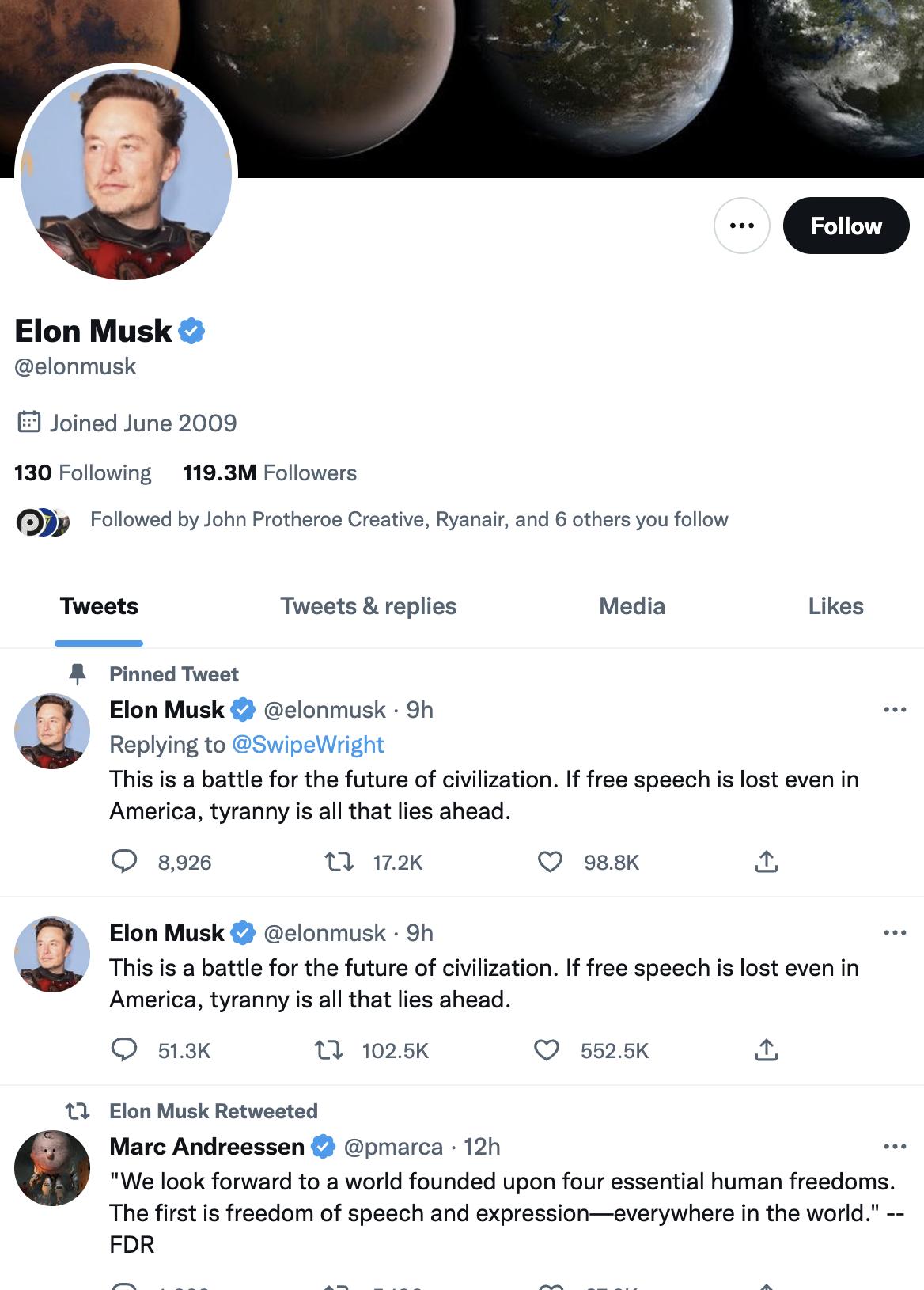
The saga took another twist as a few days after the poison pill strategy was initiated, the board backtracked and accepted Elon’s offer to buy the company. The deal looked set to go ahead until Elon decided to back out due to the amount of inactive accounts on Twitter. As a result, Twitter sued and Elon’s defence for breaching contract was that more than 5% of Twitter’s 238 million daily active users were both accounts. His second reason was that the board of
directors (whose sole job is to look out for the interests of shareholders) could not align with the interest of shareholders as they only own 0.01% of shares. The saga reached a conclusion two weeks before the trial was due to begin, when Elon gave in - mainly due to the negative press –and bought the company for good.
Despite the pretty surface, Twitter has a whole host of problems that Mr Musk has started to address. To begin with, Twitter is particularly exposed to the state of the US economy as over 95% of its $5.08 billion in 2021 revenue was from large companies advertising on the site. This is viewed as a big issue as if the US falls into a recession, firms contract in size and in order to cut down on costs spend a lot less money on advertising. This results in Twitter losing billions in lost revenue. In 2022, high US inflation (8.2%) has resulted in Twitter losing $4 million per day.
Twitter’s problems are magnified by its user statistics. Before I delve into detail, you have to understand that there are two types of ads on social media sites: non targeted ads and targeted ads. Targeted ads are done very well by companies such as TikTok, who gather all sorts of information about you – such as your hobbies, interests and demographic. Because they have all this data,
they are able to target specific adverts that you are more likely to be interested in and thus buy that product. As a result, TikTok has a very high average revenue per user (ARPU) of $46. On the other hand, Twitter doesn’t have as much data so only generates an average $9 per user. Elon is addressing this issue by introducing Twitter Blue which is a $8 monthly subscription which stops your information and data being the product and instead starts the break away from Fortune 500 companies.
The implementation of Twitter Blue and Twitter now being a private company is a step in the right direction towards freedom of speech with greater fact checking moderation. This is viewed as a positive because without shareholders and large corporations getting in the way Elon can promote change. However, there are some concerns that Mr. Musk could abuse his power and use Twitter to silence his critics – ultimately leading to less freedom of speech. As far as billionaires go, I think Elon Musk is one of the good ones and Twitter’s 238 million users are in safe hands. However, this can’t be said for Twitter’s 7500 employees, with half of them being fired and the other half picking up the work load.
On October 25th Rishi Sunak became the 5th Tory Prime Minister during their 12 years in power. Recently, the UK has been going through Prime Ministers like a knife through butter. Theresa May, Boris Johnson, Liz Truss and now 42-year-old Rishi Sunak, the UK’s first ever person of colour to lead the country, and our first Hindu prime minister. He is also younger than every predecessor except William Pitt the Younger, who famously became PM at just 24 in 1783. The recent failures behind No. 10 had all promised plans to reform the British government and each has fallen short of their ambitious projects. However, Rishi has promised no such transformation. Unfortunately for Sunak, he has inherited a political party that has spent the past few years tearing chunks out of itself. The Conservative party of 2022 is crowded with arguments and split loyalties that have made it almost impossible for both Johnson and Truss to succeed. His job now is clear: To bring calm. Rishi Sunak was born in Southampton on the 12th of May 1980 to parents of Indian descent who migrated from East Africa two decades before their son’s birth. We have all heard Sunak referring to his childhood plenty of times over the years by now. “I grew up watching my parents serve our local community with dedication.” His mother ran her own pharmacy and his father was a GP. He often recalls the weekends he’d enjoy delivering prescriptions on his bicycle. The eldest of three, Sunak was educated through private education at the world-renowned Winchester College, which costs a staggering £43,335 a year to attend. Young Rishi excelled becoming the head boy and achieving a position to read Politics, Philosophy and Economics at the University of Oxford where he earnt a first-class degree. The final straw to

Sunak’s education was a trip across the pond to undertake an MBA at Stanford University in business administration. Here he met Akshata Murty whom he would later go on to marry.
However, this woman is much more than just Rishi Sunak’s wife. In fact, she is a heiress to a fortune worth billions and has lived her life over 3 separate continents. Akshata Murty had spent much of her life in the US and India, where her father founded one of the nation’s biggest companies. But in recent years, she is just as likely to have been spotted at a local Tory social event, working the room alongside her husband Rishi Sunak in his North Yorkshire constituency. Recently, while Rishi led the nation’s financial affairs in the role of Chancellor of the Exchequer, her business was the subject of heated political debate. This is because reports emerged that the company was continuing to operate in Russia after the brutal invasion of Ukraine. Furthermore, it was revealed that Akshata Murty held non-domiciled status, which means she did not have to pay tax on earnings from outside the UK. Despite, this Akshata Murty hushed her critics as the company pulled out of any operations in Russia meanwhile, Ms Murty decided to pay UK tax on all her income. Marrying this prosperous young woman made Rishi Sunak the first-ever occupant of No. 10 to be richer than the reigning monarch at the time.
Sunak’s rise to power has split opinions among many in the UK. Some believe his entry through the big black door is a sign of social progress and should be seen as a moment of prosperity whereas, others point to his hefty riches, private education and activation of hard right-wing policies. Sunak models himself as the next Margaret Thatcher, divisive leader
who ruled from 1979 to 1990. Sunak’s primary aim is to help keep the markets under control and is due to take a more orthodox approach to the economy than his predecessor. His popularity increased during the pandemic as he introduced the furlough scheme to allow businesses to put their staff on paid leave. This was a major intervention which completely rocked the concept of conservatism. Earlier, this year when Sunak was convincingly beaten by Truss in the race for PM, he proposed a solution to the cost of living crisis. Throw money at it. His supporters would say he foreshadowed the result of a Truss government, indicating that her plans would cause an astronomical depreciation of the £. However, Sunak is less consistent on social issues, like climate change and attitudes of LGBTQ+ people.
Rishi has it all: Power, Money, and Family but now he faces the toughest job in British politics at the peak of financial mayhem. Sunak’s early days in power have been smooth, but no doubt there are going to be bumps along the way. Although many are cautious of the new man in charge, his financial prowess and outstanding education have calmed the nerves of many.
As humanity approaches the 3rd anniversary of COVID-19 cases being detected in humans, most people believe that this tragedy has passed a long time ago. This is largely true; the UK’s high vaccination rates have pacified the virus to the point that, despite it still existing, it now poses no larger a threat to the general population than flu, especially leading into the winter months. This is also due to the UK’s relaxation of COVID restrictions, highlighted by the lifting of all restrictions in February of this year. However, the largest manufacturer and exporter in the world took a different approach, and its effects are still felt worldwide. Ever since COVID first broke out in Wuhan, the Chinese government has taken a near-draconian stance on the disease, with massive lockdowns affecting hundreds of millions of people for months at a time, to get the number of cases down to zero. This obsession with this number is still felt across the world today.
As of the 11th of November, China recorded over 10,000 cases in a 24hour period for the first time in over 6 months. Despite this, the government has unexpectedly relaxed general precautions, reducing the duration

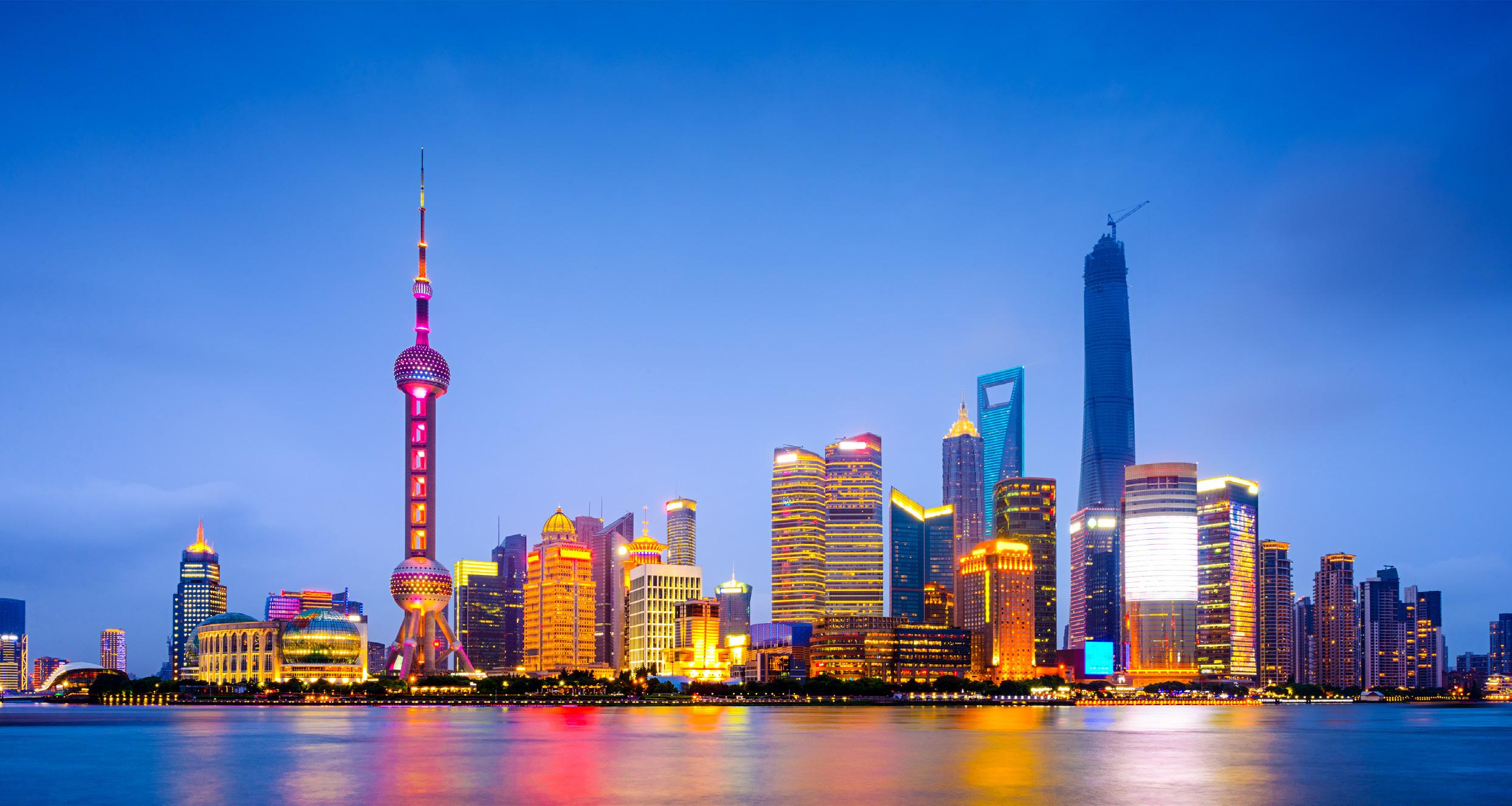
of isolation periods for residents and travellers alike. Additionally, they have also pledged to limit the extent of arbitrary lockdowns, to transfer to a more Western stance on COVID. This may be due to public discontent, owing to the massive economic and social costs that they have had to endure because of the government’s actions.
This contrasts starkly with what they have done in Guangzhou, a city nearly twice the size of London. Within this city, over 5 million people have been locked down to control COVID as of November 9th. This has led to fears that the city will follow Shanghai’s 2-month total lockdown earlier this year, which would cause chaos in the supply chains of many valuable firms, such as Walmart, Maersk, Nvidia, and Apple.
Apple is especially badly hit by this, as it worsens its production
situation, with its largest Foxconn plant in Zhengzhou remaining locked down despite the industrial estate surrounding it being released. This has led to supply of the new iPhone 14 being lower than expected, possibly causing higher prices for consumers and decreased sales for Apple. If Guangzhou becomes more extensively locked down, supply issues would worsen, leading to chronic supply-side issues for some of the most important firms in the world, as workers would continue to flee from the authoritarian restrictions forced upon them. This is once again likely to be reverted, as Xi Jinping and the Chinese people collectively seek to follow in the footsteps of the rest of the world and leave the greatest scourge in modern history behind. However, the echoes of the pandemic can still be heard in many countries across the world. How China will react is dependent on how much they listen.
The cost of living rate is increasing at its fastest rate in 40 years due to significant increases in prices of food and energy. As a consequence we are seeing huge changes in consumer behaviours and substantial impacts on people’s standards of living.
What is inflation:
Inflation is a rise in prices due to a decrease in a currency’s purchasing power. An example of this is flour which has seen an increase of a staggering 22.7% increase in price.
The current UK inflation: Inflation levels as of September 2022 was at 11.1% and whereas in 2019 the inflation rate was at the Bank of England target of around 2% just showcasing the high levels of current inflation. This sharp rise in inflation is due to a whole host of factors like the war in Ukraine causing large scale supply issues of oil and petrol, which has seen an increase in demand as people look to return to their pre-pandemic lifestyles and as a consequence the price of oil has risen. We can also look at the increase in the price of energy due to
supply issues because of the conflict in Ukraine, the price of domestic gas has risen by 96% reaching an all time high and the price of domestic energy has risen by 54%. Food has also been heavily impacted as pasta prices have increased by 60% and even the beloved UK staple, tea has increased by 46%. All of these cases highlight the extent of the affect that inflation has on prices and helps us to understand that all these increases in prices can have hugely negative impacts on people’s standards of living, as more and more of their incomes are being spent on essential everyday goods and decreasing their disposable incomes. This can be devastating for people from lower socio-economic backgrounds as more and more people fall closer towards the poverty line, thus proving a gigantic problem to the UK citizens.
In November 2022 the Bank of England has increased interest rates to 3% (the highest since the 2008 financial crisis) from 2.25% as a way to help reduce demand-pull inflation as higher interest rates incentivises the level of saving and reduces the level of demand and relieves stress on the supply chain issues. The Bank of England aims to reduce inflation rate to around 5% percent in 2023, then to 1.4% in 2024 but this is not certain in this current economic environment as there are still uncertainties around issues such as the conflict in Ukraine.
In February of 2022, Russia commenced an unprovoked attack on Ukraine. In response, the western world has struck back by imposing economic sanctions on the Russian economy in an attempt to financially cripple them, halting their attack.
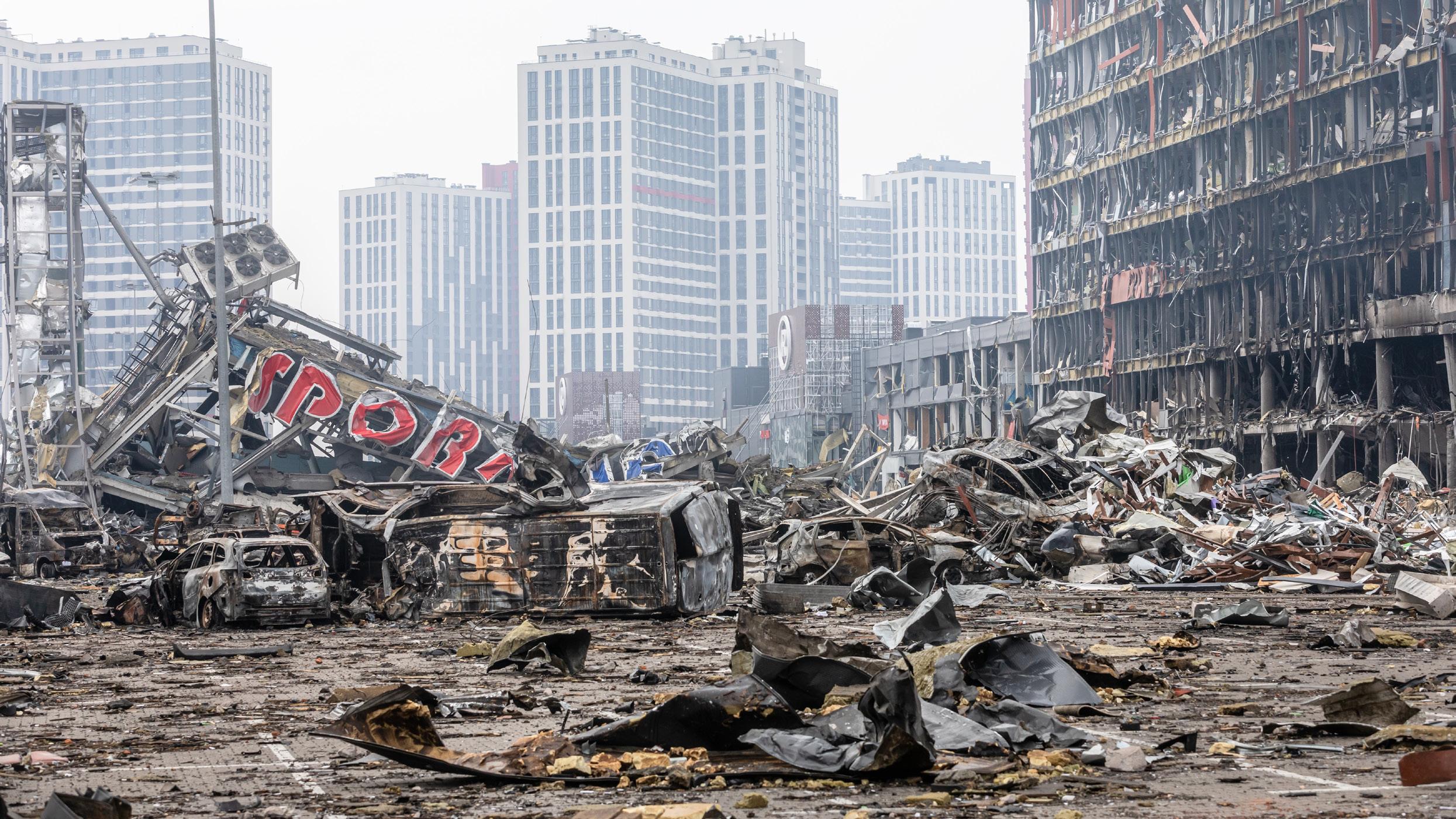
Western nations decided that trying to limit Russia’s access to money was the best way to support Ukraine whilst also not becoming too involved in the war, which would potentially escalate the conflict
further. So, what sanctions have been enacted to achieve this?
One significant sanction placed on Russia was its removal from the financial messaging system ‘Swift’. This has significantly delayed the speed of payments to Russia for its oil and gas exports (which make up 38% of the country’s exports). This has effectively slowed Russia’s means to fund their war.
Furthermore, the US has barred Russia from making debt payments
using foreign currency held in US banks, this means that Russia’s hundreds of billions of US dollars are unable to be accessed to fund the debt the country has built up from funding their war. Lastly, the UK has excluded key Russian banks from the UK’s financial system, frozen the assets of all Russian banks, barred Russian firms from borrowing money and placed limits on deposits Russians can make at UK banks. Much like the US, the UK are attempting to disable
Russia’s ability to fund their war by freezing their assets held offshore, resulting in them being unable to make payments for resources such as: guns, tanks, ammunition etc.
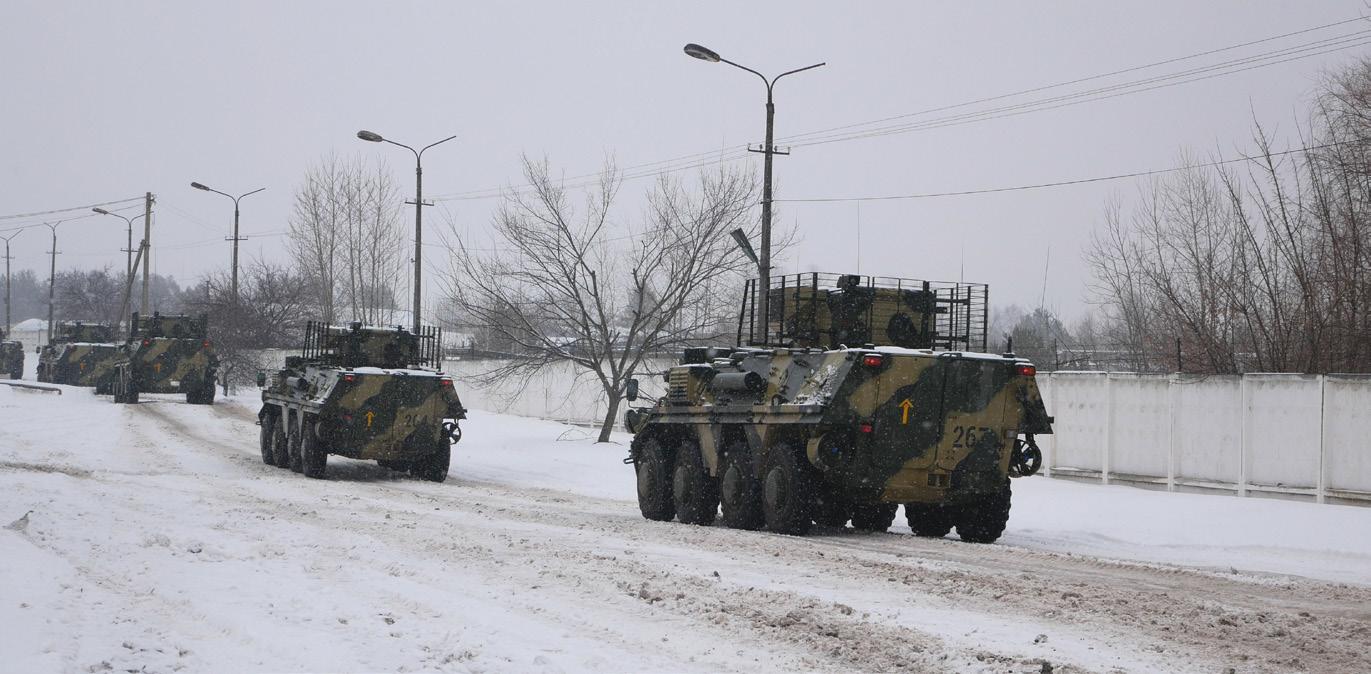
The Russian economy shrank 4 percent from April through June compared with a year earlier, the Russian statistics agency revealed. This could be attributed to the further sanctions placed on one of the country’s largest exports: crude oil and natural gas. These sanctions include:
• The EU will ban imports of Russian oil brought in by sea from December
• The EU will ban all imports of refined oil products from Russia in February 2023
• The UK will phase out Russian oil by the end of 2022. It no longer imports Russian gas The drastic effect these sanctions have had on Russia’s economy are not surprising due to experts believing 53.8% of all Russian exports are oil or gas. The EU and UK are clearly implementing these policies in attempt to phase out their reliance on Russian imported fossil fuels. This is significant as a fall in demand for such a large amount of their imports has been an attributing factor in the massive depreciation of value in their currency, the Ruble. For example, at today’s exchange rate £1 : 70.59 Rubles. This depreciation in the value of their currency has further increased domestic cost-push inflation in the country as inflation rates had sky rocketed to 16.7% in June of this year.
In May, annual inflation reached 17.1%. This means that the real incomes of Russian consumers have fallen, as wages have failed to
increase at a sufficient rate to combat the extreme inflation. This has left once bustling shopping centres much quieter now, as fewer consumers have the disposable income to be able to spend. Not only this, but Russia is now less able to import goods. Consequently, there is less to offer the consumers on the shelves of shopping malls. This means that consumers are less incentivised to go to these malls as the choice of what they can buy is restricted. Ultimately, the demand in the economy is therefore destined to fall, and a recession is pending. Capital controls have helped somewhat to maintain demand, and inflation has begun to ease. But a deep recession lies ahead. In 2022 the Russian economy is expected to shrink by up to 10%, representing forecasted unemployment and reduced total output.
Alongside the sanctions mentioned prior, well-known, wealthy Russian individuals have also been prosecuted for their association with Russia. This is down to the links they have with
their supreme leader ‘Putin’ who has commanded the attack on Ukraine. The UK, USA, EU and others have sanctioned more than 1,000 Russian individuals and businesses, some of these include so called ‘Russian oligarchs.’ These Russian oligarchs are wealthy business owners/leaders who are who viewed as being close to Putin and The Kremlin. A wellknown example of this is the Russian oligarch, Roman Abramovich, former owner of Chelsea FC. The oligarch received asset freezes and travel bans, (he’s banned from entering the UK) along with Chelsea being forced to operate under a restrictive license until a sale materialised. Just before the UK sanctions were announced, he put Chelsea up for sale for £3bn. His £150m house in London’s Kensington Palace Gardens in London was also reportedly up for sale. In addition, Chelsea weren’t allowed to sell tickets to games, its merchandise shop was closed, and they were unable to buy or sell players on the transfer market. This sanction was introduced by the UK government, in an attempt to prevent Abramovich making any profit off of the club, that he could then give back to Putin to fund the invasion of Ukraine. So in essence, the UK is reducing Putin’s budget, reducing the strength of his invasion, ultimately supporting the Ukrainians. With sanctions being imposed on numerous Russians globally, it has damaged their national economy significantly, as income flows fall, damaging their current account and ultimately decreasing their GDP.
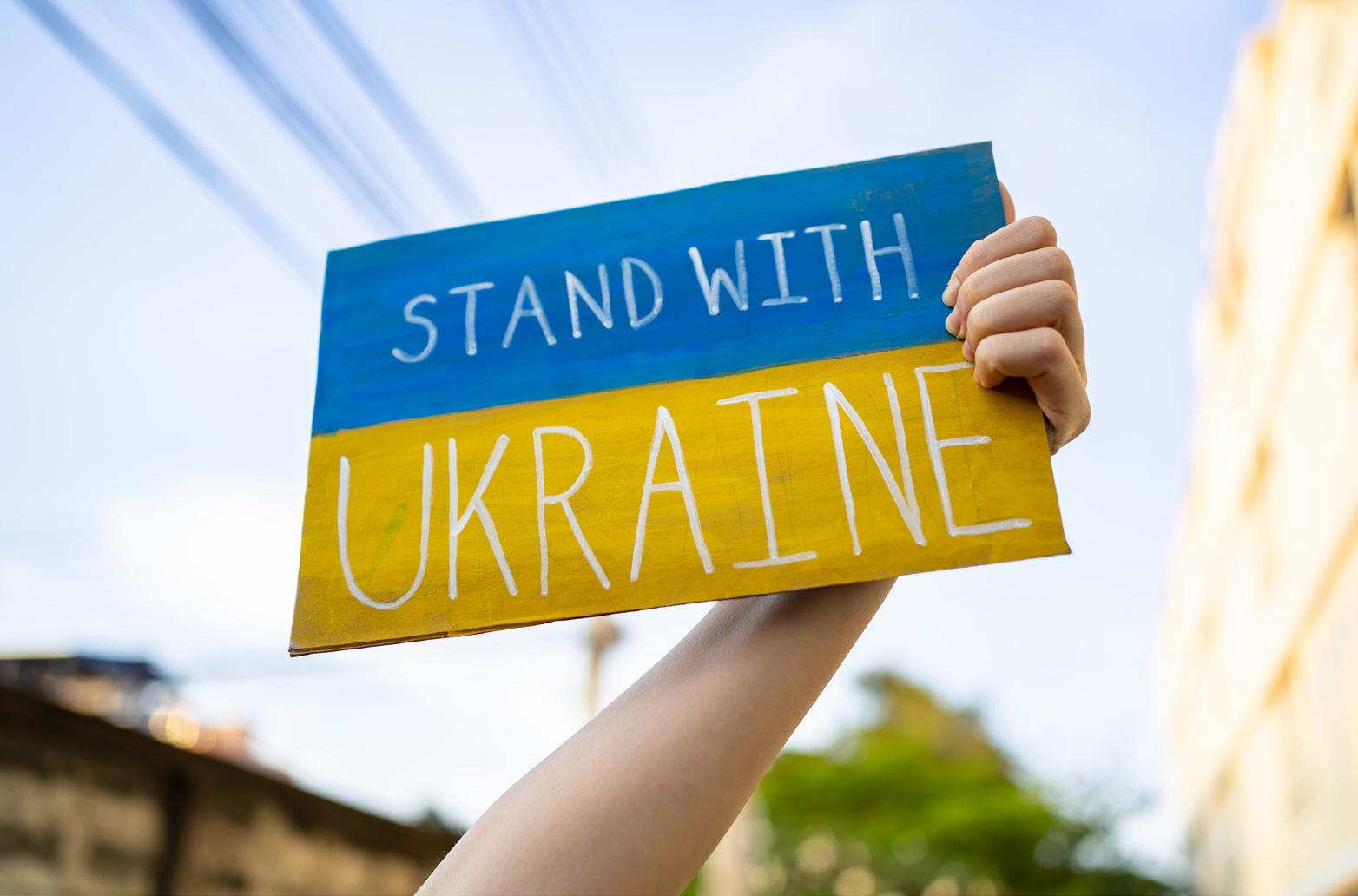
The UK public anxiously clench their wallets as the country enters a recession. After the seemingly disastrous ‘mini-budget’ was released earlier this year, we have been waiting patiently for something great from the Tories. During the Autumn Statement, our economic circumstances were toned down by Jeremy Hunt, the Chancellor of the Exchequer, with a jovial comparison to other countries’ situations, reassuring us that although things are bad, they could have been worse. After having been postponed from the 31st of October to the 17th of November, let’s dive into what the Autumn Statement has to say. ‘Stability, growth, and public services’, that’s what we have been promised by Mr Hunt. Spiralling inflation of 11.1% (a 41 year high), and a rising cost of living is leaving households worrying if there will be another ‘Winter of Discontent’. With high inflation being the ‘enemy of stability’ it’s necessary that these measures be effective. What measures have been put in place? The Chancellor has announced that the typical annual household energy bill which is currently £2500 will jump to a £3000 cap and this will remain in place for a further year. State pensions are set to rise in line with inflation, and the new weekly pay-out will now increase to £203.85. The UK Personal Allowance (the amount of income you don’t have to pay tax on) which is currently £12,570 is set to be frozen until April 2028. What does this mean for households? Difficult spending decisions will have to be made. The UK average salary in this country is £27,756 meaning that the average earner will have more than half their income taxed, leaving them with tough future decisions. The 45p rate band threshold has been lowered from £150,000 to £125,140.
This means that for every £1 earned above £125,140, 45p will be taken away. Analysis shows that 246,000 more people will be affected by this change.
All other personal tax thresholds involving income tax, inheritance tax and National Insurance Contributions have been frozen until 2028. At first this may seem appealing, but a closer analysis reveals that as wages rise, more of our income will be creeping into higher tax bands causing us to pay more in taxes. Wages will be rising for two main reasons: workers demanding more through trade unions and strikes; and because Mr Hunt has increased the National Living Wage, by 9.7% to £10.42 an hour (this will come into effect on the 1st of April 2023).
How does income tax work in the UK?
Your yearly income is divided up into bands and put into a table like this (below). For example, someone earning £60,000 a year will have their earnings fill up each band as shown in the ‘example’ column below.
Income Tax Band Taxable Income Tax Rate
Example for a £60,000 earner
Net Income (£)
Personal Allowance £0£12,570 0% - No income tax payable 12,570 12,570
Basic Rate £12,571£50,270 20% 37,700 30,159.20
High Rate £50,271£125,140 40% 9,730 5838
Additional Rate Over £125,140 45%
Net income is how much money someone has left after taxes have been deducted, so a £60,000 earner will remain with £48,567.20.
In addition to these tax changes, we will see more spending. For example, £2.3 billion more is to be spent on schools per year, for the next two years, and the NHS annual budget will increase by £3.3 billion, for the next two years.
Below are some reactions to the Autumn Statement from across the nation.
“Investment managers support the government’s commitment to a stable, growing economy.”- Chris Cummings, Chief Executive of the Investment Association.
“Mr Hunt has ‘picked the pockets’ of the entire nation through ‘stealth
Total - £60,000 £48,567.20
taxes’.”- Shadow Chancellor Rachel Reeves.
“My savings have been depleted ‘down to zero’ by inflation and the cost-of-living crisis and Hunt’s budget ‘will only make that worse’.” - David, a 30-year-old civil servant from Sheffield.
In summary the Autumn Statement will save the economy ‘£55 billion’. Will the government stick to their plans and will they be effective? With so called ‘stealth taxes’ and increases in spending on the NHS and schools, the government’s Autumn Statement has had a mixed reception, however, compared to Kwasi Kwarteng’s ‘minibudget’, the future is now looking less bleak.
We are eager to find out what will happen!
FUN FACT: 16 & 17 year olds will see a minimum wage increase to £5.28 per hour.
Quantitative easing is when the Bank of England buys bonds to lower the interest rates on savings and loans. This helps them to keep inflation low and stable. Lower rates mean you get less interest on your savings, so it’s less attractive to save money than to spend it. Lower interest rates make it cheaper to borrow money, so it’s easier to buy a new house, or car or expand your business. People buying things and businesses investing helps the economy stay healthy, protecting jobs. The BoE turned to quantitative easing as a way to encourage spending and investment.
Quantitative easing works in a similar way to cuts in the bank rate. It lowers the interest rates on savings and loans. This stimulates spending in the economy. The BoE buys UK government bonds and corporate bonds from other financial companies and pension funds. As a result, the price of these bonds tend to increase which means that the bond yield, or “interest rate” that holders of these bonds get, goes down. The lower interest rate on UK government and corporate bonds then feeds through to lower interest rates on loans for households and businesses. This helps to boost spending in the economy and keep inflation at target.
Quantitative easing also affects the price of other assets like shares and property.

E.g. If the BoE buy £1 million of government bonds from a pension fund. In place of these bonds, the pension fund now has £1 million in cash. Rather than holding on to this cash, it will normally invest it in other financial assets, such as shares, that give it a higher return. This will push up the value of shares, making households and businesses holding those shares wealthier. The level of spending rises, boosting economic activity.
The first QE programme in the UK was launched in 2009 when the financial crisis was threatening the economy, unemployment was rising and the stock markets were in freefall.
The Bank subsequently launched new rounds of QE after the eurozone debt crisis, the Brexit referendum and the coronavirus pandemic.
Quantitative Tightening UK’s recovery from the pandemic and Russia’s invasion of Ukraine has contributed to prices rising fast. Instead of trying to support the economy, the BoE needed to slow it down to control prices. It did this by raising interest rates. In February 2022, the BoE began the process of reducing its holdings of government bonds to try tackle the high levels of inflation. At the beginning of November 2022, t he BoE became the first central among the G7 group of advanced economies to start actively selling bonds to investors. This is what we reference as Quantitative tightening.
How does Quantitative Tightening affect government borrowing?
The BoE’s QE programme helped the government to borrow money to cover the gap between what it raises in taxes and what it spends. When the programme was at its peak, the BoE held well over a third of the national debt. At this stage, the government paid led interest on bonds owned by the BoE than other investors, this took further pressure off the public finances. Currently, the bond prices are lower than they were when the BoE bought them, it will make a loss when it sells them, which the government will have to pay. The unwinding of the QE will make it more expensive for the government to borrow money in the future.
Impact of QE
QE has helped to keep economic growth strong, wages higher and unemployment low. However, QE has left the UK economy with some consequences. QE has contributed to the price of shares and property increasing. This tends to benefit wealthier members of society. Most research suggests that QE helped to keep economic growth stronger, wages higher, and unemployment lower than they would otherwise have been. Meanwhile, younger people have found it harder to buy their first homes and build up savings.
The impact of QE on Pension funds
Government bond prices are used to estimate how much it will cost to provide pensions in the future. If these bond prices go up, the cost of providing future pensions rises. As a result, many firms were obliged to make bigger payments into their pensions schemes, this reduces the ability to invest in other areas of the business.
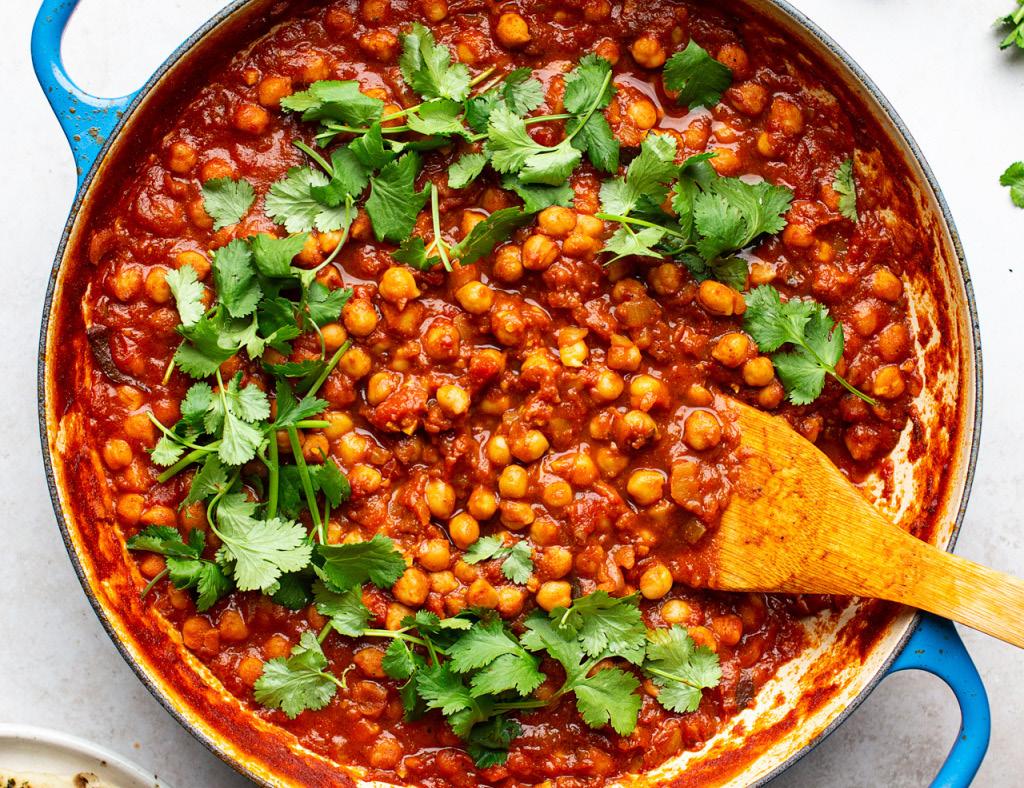
2 tins of 400g chick peas (drained and rinsed)
2 tablespoons of sunflower oil
3-4 garlic cloves (crushed)
1 large white onion (finely chopped)
1 green chilli (finely chopped) or 1 frozen green chilli cube
2 inches fresh ginger or 3 frozen ginger cubes
1 tin of 400g chopped tomatoes
1 teaspoon of salt (or more dependent on taste)
½ teaspoon of turmeric
1 teaspoon of Kashmiri red chilli powder
1 teaspoon of garam masala
2 teaspoon of ground coriander
1 teaspoon of ground cumin
Fresh coriander (chopped finely)
1. Heat a large pan and pour the sunflower oil. When the oil turns slightly hot, add the onions, and sauté until they turn light golden.
2. Add the ginger and garlic and sauté for a minute or two without burning.
3. Stir in the red chilli powder, turmeric, garam masala, coriander powder and cumin powder. Sauté until the masalas begin to smell good, a minute or two.
4. Add in the chopped tomatoes. Let it simmer/cook until it turns into a thick sauce like consistency.
5. Whilst the tomatoes are cooking add in the green chilli.
6. Add the chick peas in, along with a cup of water. Also, add your salt at this point too.
7. Cover the pan and simmer for 10-15 minutes.
8. Stir in fresh coriander leaves
Serve with either rice, naan or roti
www.cheshamgrammar.org
Designed by Invo Design sales@invodesign.co.uk
 created by the CGS Economics department
created by the CGS Economics department